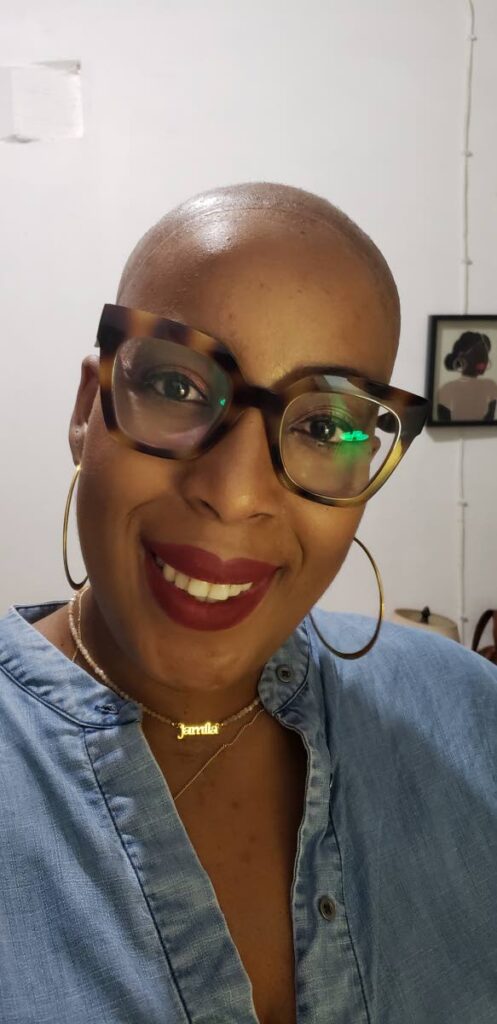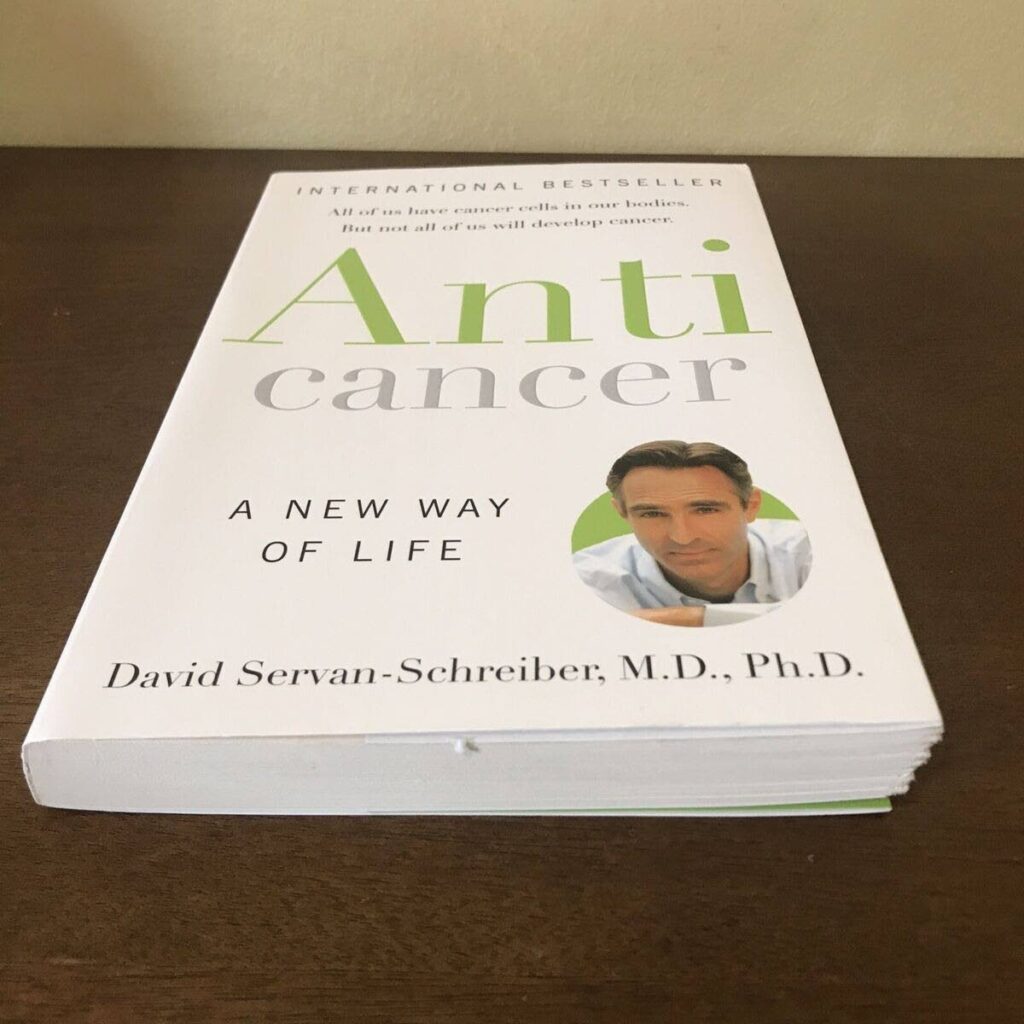Jamila wages total war on breast cancer: 'It's not fun or pink'

Brand and marketing strategist Jamila Bannister has spent most of her adult life helping people choose the best look and feel for their brand.
So when she was diagnosed with inflammatory breast cancer (IBC) in May, although she was understandably terrified, she almost immediately went into professional mode.
She told no one outside her family and close friends about it until she fully understood the extent of the disease herself.
"As a career communicator I had to be strict with my family on who would know and when. This gave me a level of control and peace inside the storm. Because breast cancer is so different for everyone, I wanted to be armed with the correct information so that I could control the narrative.
"The idea of my illness being reduced to the rumour mill bothered me, so clarity and control was crucial for me."
She began researching IBC, but given its rarity it was hard to find any information in a local context. IBC is one of the rarest and most aggressive types of breast cancer.
"The first and one of the only videos I found was on YouTube of a 15-year survivor based in Texas, US. Her story really gave me hope, because Google searches was giving me certain death. After looking at her video, I was finally able to sleep through the night again.
"Through her website I was able to find more women and feel more hope."
She also bought the book Anti-Cancer: A New Way of Life, by Dr David Servan-Schreiber, which went into great detail about cancer as a disease, and the lifestyle and dietary changes that optimise chances of surviving.
"I felt empowered when I read it. Apart from the things I removed from my diet, I started introducing certain antioxidant-rich foods like blueberries and green tea, as well as food high in Omega-3s, like salmon and walnuts. All of these helped to reduce inflammation."
She said tapping into her support system in the earliest days was important as well.
"My mum, who is also a survivor, pulled out her mental playbook and has been there for every appointment.
"My close friends, particularly the one who picked me up at 5 am to take me to treatment, and the others who bought things I needed really showed me the power of having a solid village around you."
Before her diagnosis, Bannister had spent months trying to figure out why her left breast was swollen and painful, despite previous doctor’s visits and the fact that a mammogram and ultrasound had not raised any real alarms.
But as terrifying as it was, it was also a relief when surgical oncologist Dr Rajendra Rampaul at the Pink Hibiscus clinical her she had cancer, but: “This is treatable, and if it’s treatable, it’s curable,” giving her hope.
"When my diagnosis was finally confirmed, it was bittersweet...I had an answer and could finally seek a treatment plan," which would include chemotherapy, surgery and eventually radiation.
"I had to mentally prepare myself for each stage. I went into full research mode so I could learn possible side effects and how to prepare myself for what was about to come."

Rampaul immediately referred her to the Women’s Health Clinic at the St James Medical Complex (SJMC), where she met with the consulting physician who sent her for follow-up tests and enrolment at the National Radiotherapy Centre.
"People tend to have lots of negative sentiments about our public healthcare system, (but) while it’s not perfect, the quality of care is top-notch. The doctors and nurses are very competent and thorough.
"When I think about the eye-watering cost of cancer treatment when done privately, I can’t help but think that we are so blessed in this country to access the level of care we have, at no personal cost to us.
"One chemotherapy session can cost upwards of $50,000, and on average you have to get six-eight sessions. And that’s just chemo, not surgery, radiation or other medication.
"The days for treatment can be long, but I just pack a lunchkit and a book."
Bannister said her advice to women diagnosed with breast cancer was to take a blended approach with their medical care, with early detection being the goal.
She suggested: "Your investigation and diagnosis being done privately, and following up with treatment in the public sector."
This experience has taught her many lessons, the top being that there are times when you have to do what you need to do to heal and be restored to good health.
"I changed the way I eat, removing anything that could create inflammation. Exercise is no longer something to do when I feel to: it has now become a critical part of my week. Even if I feel the chemo exhaustion or other side effects that make me just want to sleep for days at a time, I get up and do something.
"Spending time in prayer and talking to God has become the most crucial it has ever been in my life, and choosing not to absorb any stress is a daily decision for me.
"I see improvements with each treatment session, and I feel good about winning this fight."
But even with her optimism and her progress in treating her cancer thus far, Bannister, 37, remains fearful about the part of the battle that could mean losing what many people see as her femininity.
"Being diagnosed with such a life-changing disease, especially when you are of reproductive age, can really put things into perspective. It makes you think about all the times you put off starting a family, or at least makes you realise that you have to be more intentional about it.
"From losing your hair, eyelashes, eyebrows, possibly your breasts and the possibility of losing your fertility can really be a devastating blow.
"For me this is even more severe because I discovered I have the genetic mutation PALB2. This mutation increases the risk of several cancers, including breast and ovarian."
Her oncologist has therefore advised her to have her ovaries removed, as a risk-reducing strategy.
"Imagine having your whole body intact today, then standing the risk of losing the parts that quintessentially make you a woman. It’s scary and overwhelming. One of my greatest desires is to get married and have one or two children" – one that may never be fulfilled, unless she freezes and stores her eggs or considers adoption.
But she said, in the grand scheme of things, although breast cancer has changed her life in many ways, many of those changes have been positive.
"The physical effects have been a lot – from loss of weight to neuropathy (nerve pain) in my hands and feet, blistered gums and total loss of my hair.
"But I know that most of these are temporary, and I try to keep good spirits despite the challenges.
"But my diet has never been better, I’m more active, I’ve reconnected with people I have not heard from in ages, I’ve learnt to treasure my friends and family even more, and my walk with God is stronger."
October is Breast Cancer Awareness Month, with many "pink" events and sales – a cause of great concern to Bannister, especially as a cancer patient.
"It feels like a complete 'pinkwash,' and you can never really tell if the earnings from the endless events and sale of pink products 'in support of breast cancer' actually have any impact on patients.
On October 1, Bannister's birthday, she posted the first of what will be a series of videos on Facebook, telling her followers about her diagnosis and her treatment journey so far.
"When I shared my story publicly, it was called the 'non-pink' perspective for this reason.
"Cancer is not fun or pink – it's a health war that needs all the fight you have in you, and I think that can get lost inside all of the pink.
"If you really want to make an impact, reach out to a patient you know and offer to drop them off and pick them up from chemo, sponsor a few post-surgery physical therapy sessions, sponsor a mastectomy bra or two, a wig, or even just call them and pray with them.
"There are small ways to make big impact and I’d encourage you to go beyond the ribbon with your support."


Comments
"Jamila wages total war on breast cancer: ‘It’s not fun or pink’"